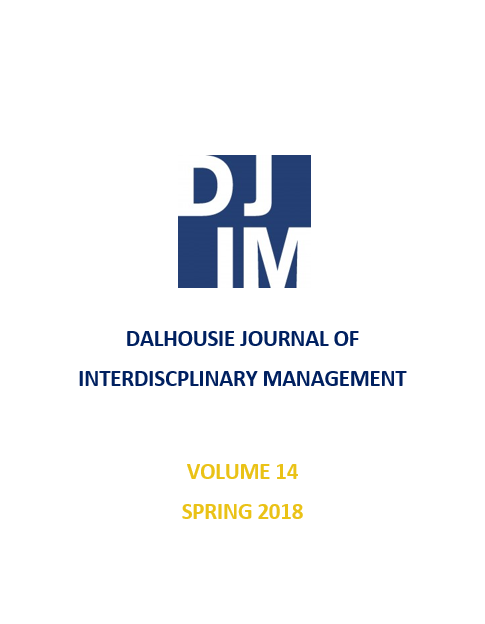Building for Diversity: How Public Libraries Can Create Great Multilingual Collections
DOI:
https://doi.org/10.5931/djim.v14i0.7854Keywords:
Multilingual, collection development, public libraries, book selectionAbstract
In a multicultural and multilingual country like Canada, building quality multilingual collections in public libraries is an important part of providing equitable library service to all community members. However, this can pose a challenge especially for smaller library systems or systems where no staff speak major community languages. Having multilingual staff offers a significant advantage, both in terms of making connections with community members and being able to appropriately select and catalogue materials. Because of this, libraries, MLIS and Library Technician programs should encourage applications from diverse candidates. Even without multilingual staff, libraries can be successful in creating appropriate multilingual collections by following a process that includes community consultation, collaborating with other libraries to share information, identifying good vendors, cataloguing and maintaining the collection, marketing it appropriately, and providing staff training. Through this process a library can get to know the needs of its community, build relationships and gain experience creating and maintaining a quality multilingual collection. A multilingual collection and other services like cultural programming can mutually support each other through advertising to participants. Although it can be challenging, successfully engaging and serving a diverse community is rewarding and will be appreciated.
References
Atlestam, I., Brunnstrm, A., & Myhre, R. (2011). Collection development for immigrants - what to purchase, and why? Findings in Gothenburg, Sweden. IFLA Journal, 37(1), 69-79. doi:10.1177/0340035210397308
Baker, K. (2012). Meeting the needs of diverse communities. Public Libraries, 51(5), 34-35.
Chilana, R. (2001). Delivering multilingual services in public libraries in British Columbia: A case study of the Fraser Valley Regional Library. PNLA Quarterly, 65(3), 18-20.
Cowles, D. (2013). The ESL patron perspective. Alki, 29(1), 8-9.
Dali, K. (2010). Readers' advisory in public libraries and translated fiction. Reference Librarian, 51(3), 175-188. doi:10.1080/02763871003733430
Dilevko, J., & Dali, K. (2002). The challenge of building multilingual collections in Canadian public libraries. Library Resources & Technical Services, 46(4), 116-137.
Greater Victoria Public Library. (2017). Francais & World Languages. Retrieved from https://www.gvpl.ca/read/francais-world-languages/
Jang, W. (2003). Multilingual services at Richmond Public Library. Feliciter, 49(3), 158-160.
Lynch, G. H. (2015). A world of opportunity. School Library Journal, 61(4), 1.
Ma, A. (2015). What Do We Provide for Multicultural Patrons? The Impact of Collection Development on Readers‘ Advisory for Multicultural Patrons. Retrieved from BCLA Reader's Advisory Group: What are you reading?: https://whatareyoureadingblog.com/tag/multilingual-collections/
Rogers, M. (2003). Serving up world languages. Library Journal, 128(11), 42-44.
Rubin, V. (2013). How is your libraries dealing with foreign language resources (in terms of information organization, access, and curation)? Retrieved from Research Gate: https://www.researchgate.net/post/How_is_your_libraries_dealing_with_foreign_language_resources_in_terms_of_information_organization_access_and_curation
RUSA. (2007). Guidelines for the development and promotion of multilingual collections and services. Reference & User Services Quarterly, 47(2), 198-200.
Schull, D. D. (1998). Innovating to serve the global village: Thoughts about multilingual and multicultural services. Reference Services Review, 26(2), 59-63.
Skrzeszewski, S. (1993). The Southern Ontario multilingual pool: A model for co-operative library service development. Audiovisual Librarian, 19, 129-136.
Steckman, B. (1998). Library services to a linguistically diverse community: A workshop report from New Jersey. Reference Services Review, 26(2), 57-59.
Toronto Public Library. (2017). Material in your language. Retrieved from http://www.torontopubliclibrary.ca/books-video-music/your-language/
Vancouver Public Library. (2017). World languages. Retrieved from https://www.vpl.ca/borrowing/world-languages
Downloads
Published
Issue
Section
License
Papers published in the Dalhousie Journal of Interdisciplinary Management must be the original, unpublished work of the author. Contributors are responsible for obtaining any copyright clearances required in relation to their work.
Authors submitting a paper to the Dalhousie Journal of Interdisciplinary Management automatically agree to grant a limited license to DJIM if and when the manuscript is accepted for publication. This license gives permission for DJIM to publish the paper in a given issue and to maintain the work in the electronic journal archive. DJIM also submits issues to institutional repositories and Open Access repositories.
Contributors agree to each reader accessing, downloading, or printing one copy of their article for their own personal use or research. All other copyrights remain with the author, subject to the requirements that any republication of the work be accompanied by an acknowledgement that the work was first published in the Dalhousie Journal of Interdisciplinary Management and that the DJIM Editorial Chair must be notified of any republication of a work first published in DJIM.
Dalhousie Journal of Interdisciplinary Management
c/o School of Information Management
Faculty of Management
Dalhousie University
Kenneth C. Rowe Management Building
6100 University Avenue
Halifax, Nova Scotia B3H 3J5
Canada
Email: djim@dal.ca
Authors should recognize that, because of the nature of the Internet, the publisher has no control over unauthorized copying or editing of protected works.


